Jul 10 2018.
views 536
The Chitra Lane School for Special Children celebrated World Environment Day on the 4th of July. Over 200 students participated in the event along with teachers and parents. Ms. Otara Gunewardene, a board member and a trustee of the Chitra Lane Organization, was chief guest at last Wednesday’s event. It was a day filled with excitement, fun and learning for everyone who attended.
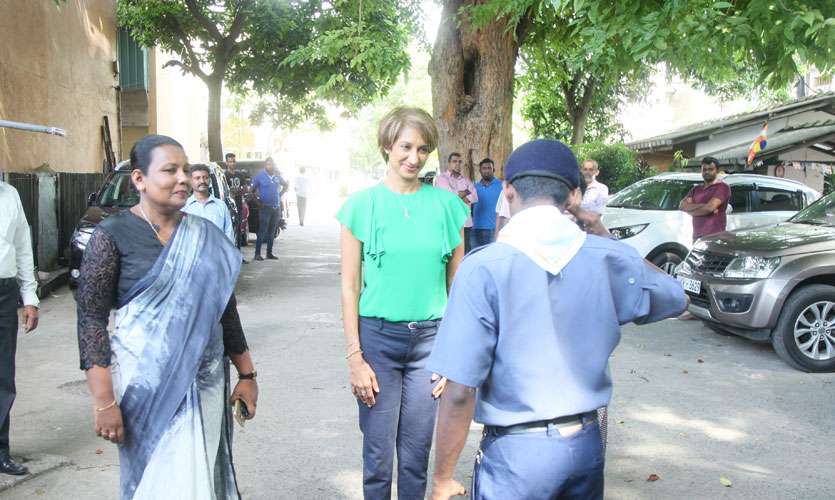
Ms. Delysia Gunewardene, President of the Chitra Lane Welfare Society for Children with Special Needs, had this to say: “Environment Day’ is a special day in our event calendar as it is a great opportunity to teach our kids how small changes at school can make a difference to the environment”. “Students will be given an opportunity to participate in a range of activities focused on experiencing and preserving our natural environment” she added.
The focus of this year’s Environment Day was on recycling, reusing and reducing plastics and polythene and also eco-friendly gardening. The students took part in activities ranging from dengue prevention, green gardening, using local ingredients for cooking and learning to use Ayurvedic medicinal treatments, all the while using all the proper utensil needed for each activity. There was even a demonstration done by the students, with one playing the role of the ‘vedhamahathaya’ treating a patient bitten by a poisonous snake.
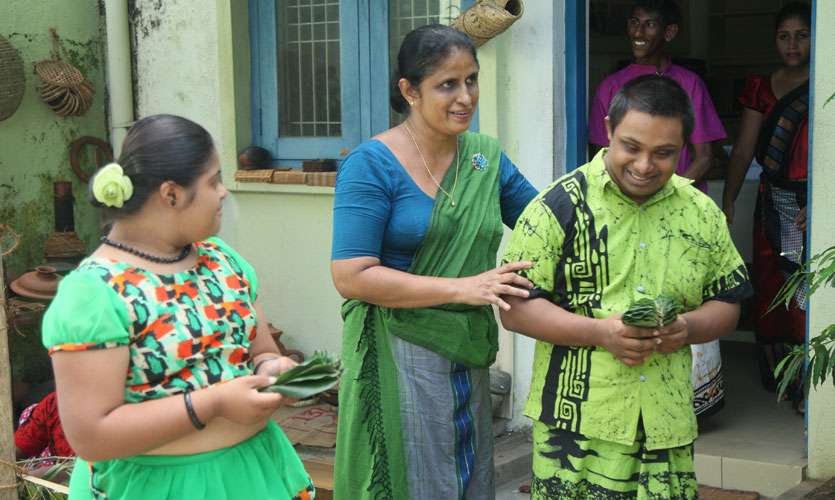
Overall, the children enjoyed themselves and prepared for the event with much enthusiasm. Upon interviewing Ms. Delysia Gunewardene, she emphasized on the importance of integrating fun while teaching students. “Through fun, you teach them. I find that to be more effective for them, their parents and the staff. It interests other people as well”.
Ms. Delysia Gunewardene highlighted that the Environment Day celebrated at Chitra Lane was for the benefit of the students, teachers, parents and the public, and emphasized the need to spread awareness on the importance of the environment on our lives and the need to preserve it for the future of our country.
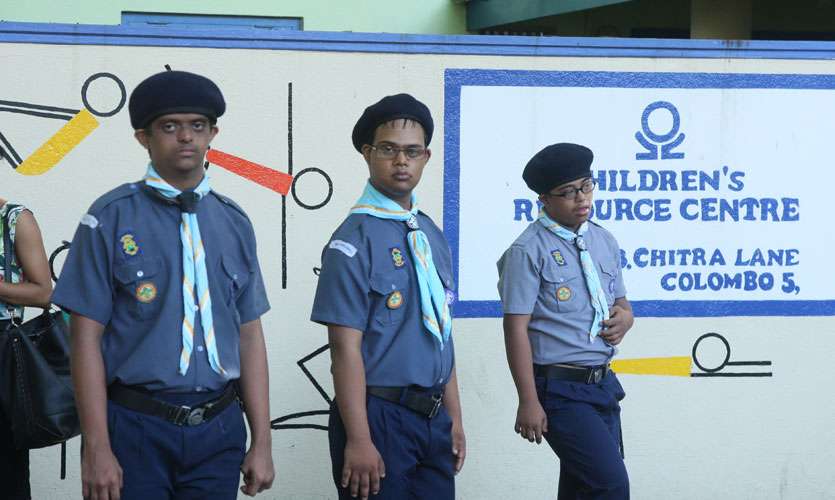
We caught up with Ms. Otara Gunewardene, who is also a passionate advocate of environmental sustainability, for her views on environmental protection and conservation:
You are well known for your advocacy for animal rights and welfare, tell us why you are a passionate advocate of environmental sustainability?
I’ve loved being close to nature and have always understood the importance of protecting out environmental from childhood. That also goes together with animal protection. I think it’s so important that we live in harmony with nature because everything we need to survive comes from nature. It’s important for all of us to care and do a lot more to protect the environment.
You are against the use of single-use plastic and polythene. Not many people understand the gravity of the issues caused by single use plastics and polythene. How would you explain why it is important for us to change our patterns and habits of consumption to avoid the use of such material?
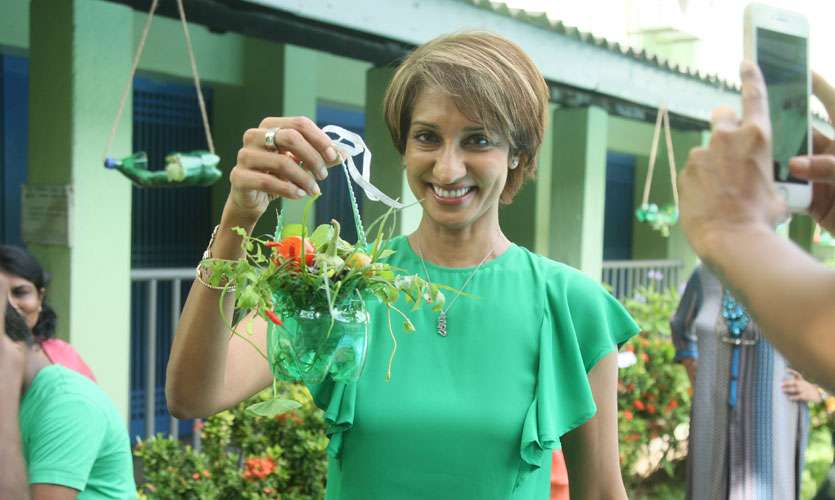
We never realised the impact it has on the planet and ecosystem. Over the years consumerism has grown to a much larger scale. It doesn’t break down and decompose so it remains virtually forever. Not having proper systems and people’s irresponsible disposal is a huge issue. All this time we haven’t been able to solve that problem. The oceans are filling up with more and more plastic. I have seen myself, cases where people are separating the fish from the plastic. I think we all need to realise how serious the problem is going to be if we don’t act now to make changes on how we live. We can have whatever rules and regulations but we need to change [our patterns and habits of consumption] and become conscious consumers to benefit all forms of life. It’s not just about us. It’s also about making changes for the long term and for future generations.
People are under the impression that it isn’t easy to avoid the use of single use plastics and that it is really not that easy to switch consumption patterns and habits. How would you advice someone looking to change? Where does one start?
As humans we are capable of so many things. We are intelligent. We are capable for going to the moon! So if you think that we can’t not use plastics, it’s not true. It’s just that we don’t want to. We need to consciously make that effort. After you see it, you can’t just carry on blindly. Seeing it makes you aware and helps you make that conscious decision. You could start off with small changes like instead of buying new water bottles all the time, you could use your own reusable bottle, be it metal or glass. You could use reusable bags when you go to the supermarket. They virtually force you to take more bags and then what do you do? You come home, take your stuff out and throw your bags away. This is a huge problem for us, the government and the country as it’s a huge cost to clean up later. We need to change that cycle. We all can do it. There are many people doing it now. In Sri Lanka this wasn’t a huge concern until recently.
You’ve been an icon figure within the Sri Lankan fashion industry and Sri Lanka is well known for its garment manufacturing industry- a node of the larger fashion industry. The fashion industry has been besmirched as being the second highest polluting industry in the world, the effects of which negatively impact environmental sustainability. What, in your opinion, could the Sri Lankan garment industry do to be more environmentally conscious?
It’s mostly driven by a change in consumers and buyers. Currently, the fashion industry is moving away from the fast fashion trend that I was a part of. Now, a lot of brands are talking about circular fashion, reusable garments and using less plastic. A lot of conversation is happening around this topic and lots of changes are being made. Last week, H&M and Guess talked about making changes. They are doing this because there is a request from consumers to be more sustainable. The consumer has to change also. As long as the consumer keeps demanding for disposable, non-environmentally friendly clothing, and continue to be a part of the ‘buy and throw away culture’, the industry will feed that. I think the new generation is changing and far more conscious. A strong example of this would be the much talked about the matter at the last royal wedding when Kate Middleton had worn that particular dress three times before. As a result, brands are changing. In the long run, this will also change the manufacturing process. At the moment they are fulfilling orders of customers which is why they can’t make changes as of now, but it’s likely to happen in the future.
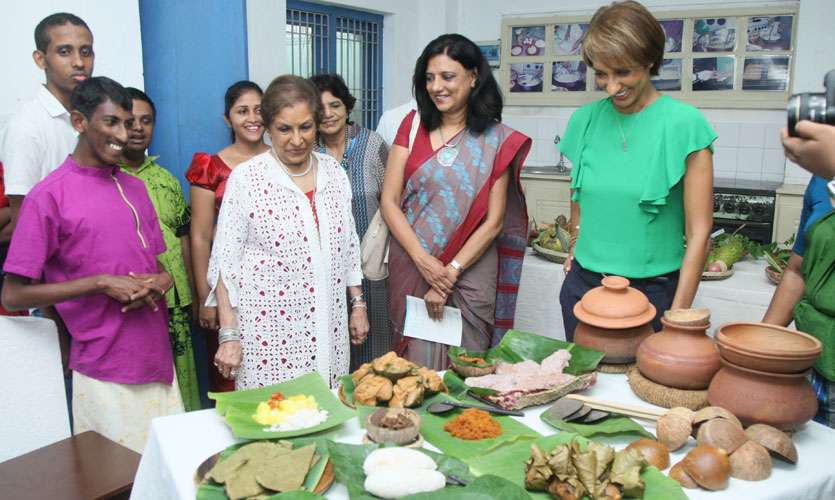
By: Suhashana Wijayaratna
Photographs by: Damitha
0 Comments